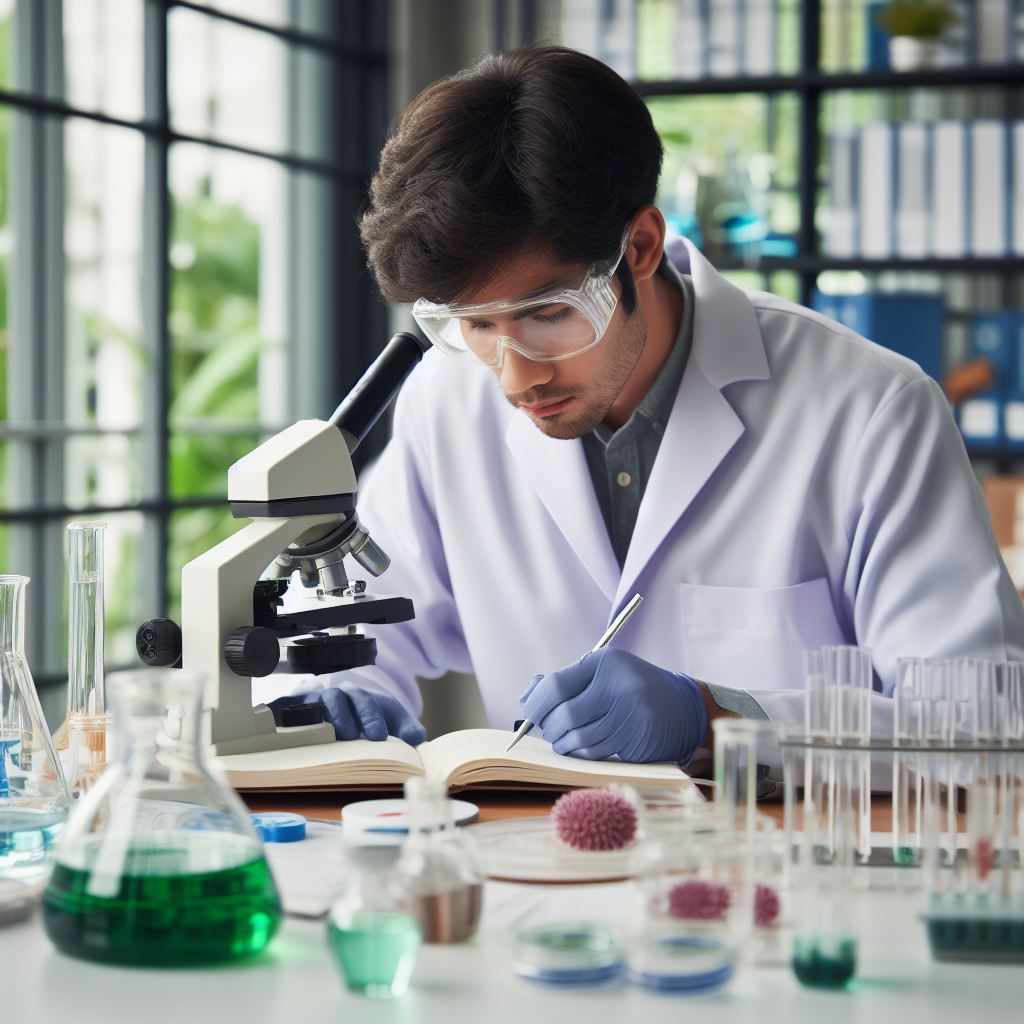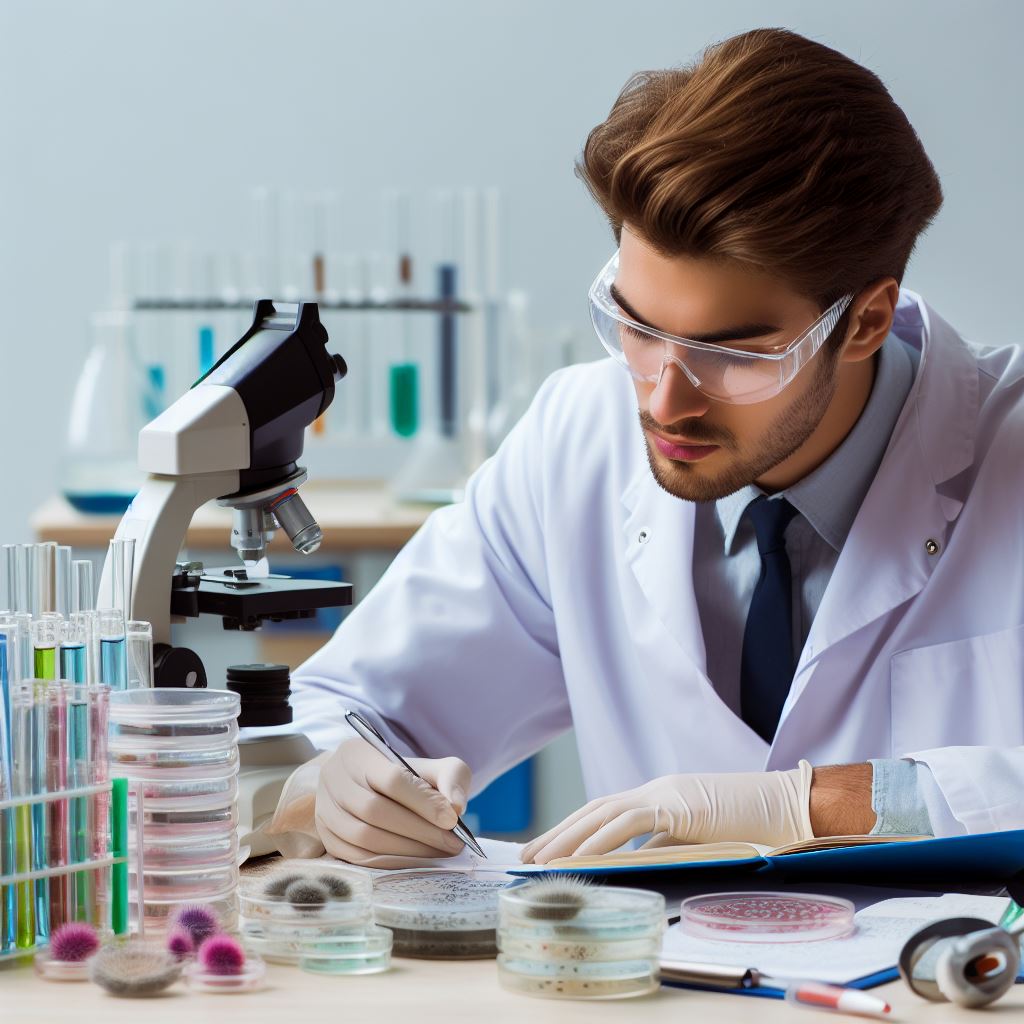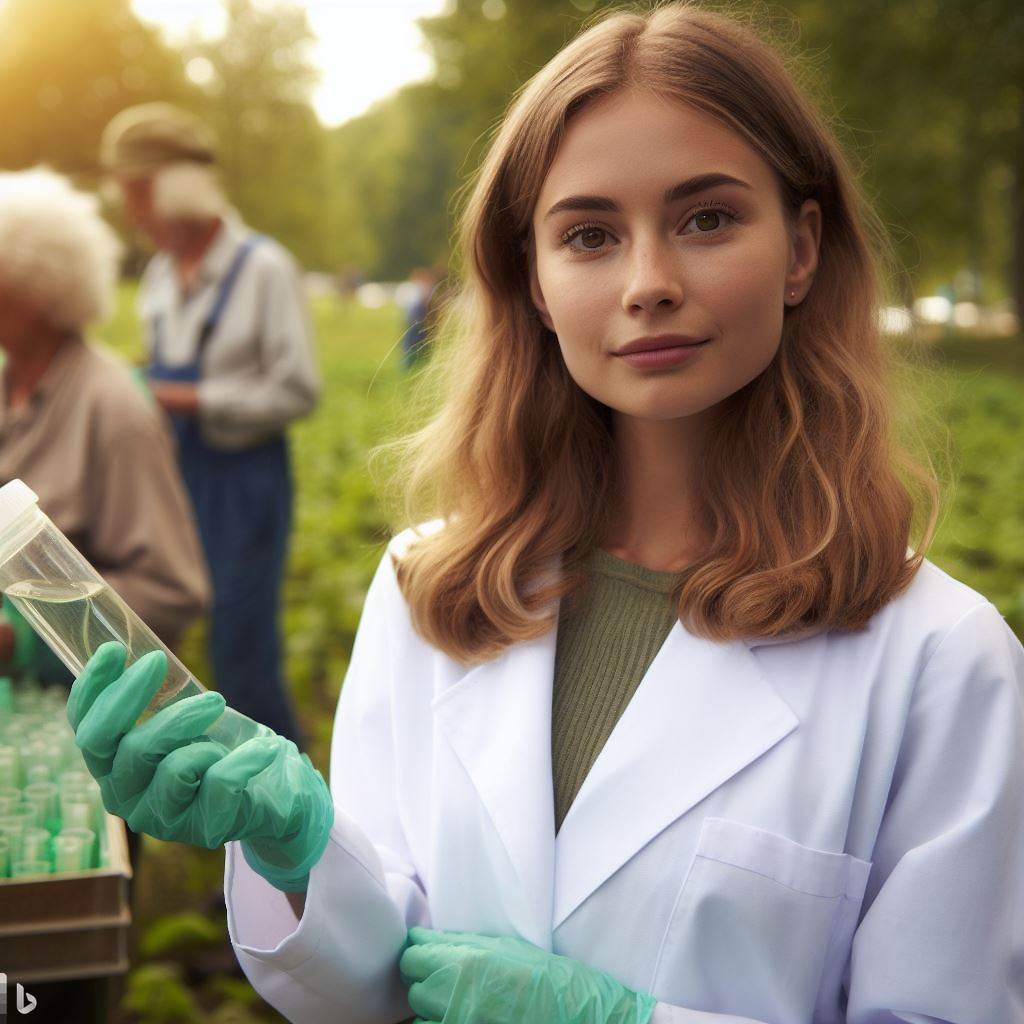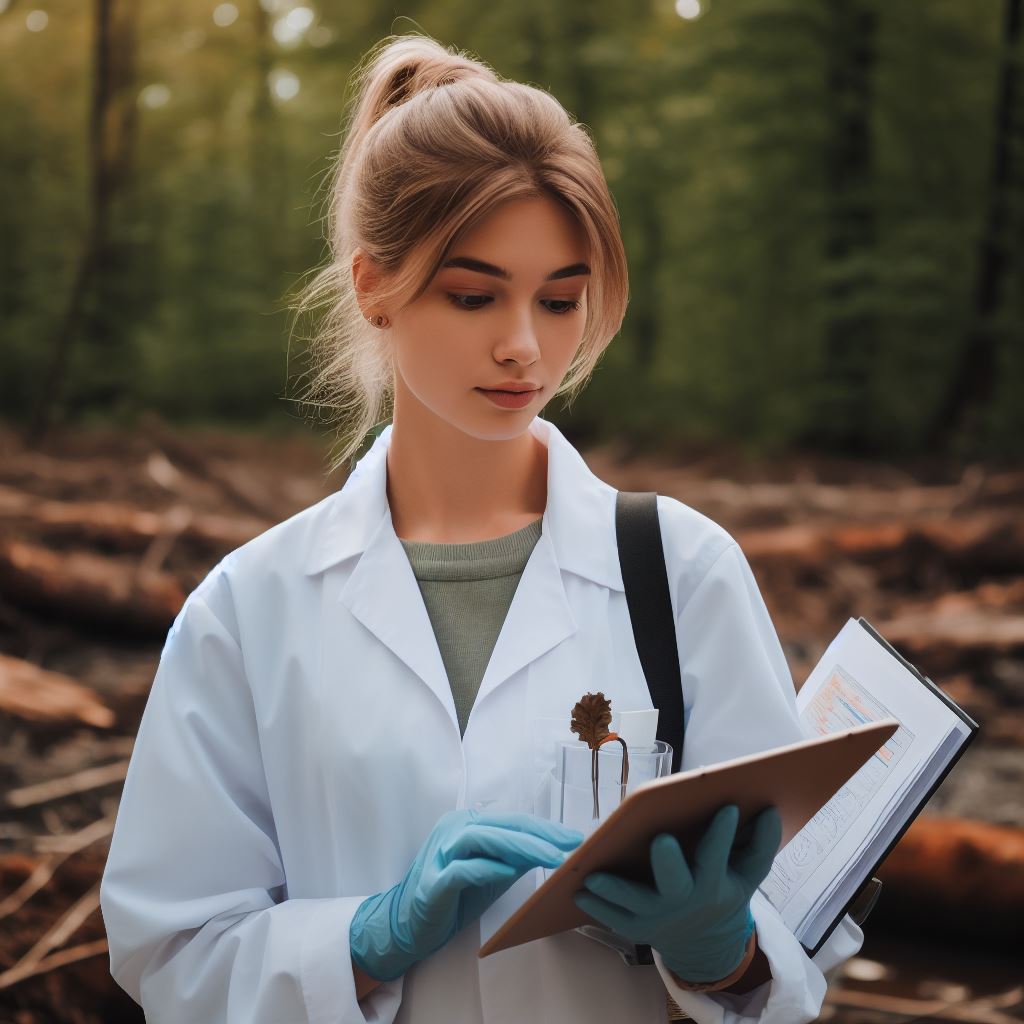Introduction
Explanation of the Topic
The influence of biologists on American society is far-reaching and substantial, touching upon diverse facets of our daily lives, the role and impact of biologists
Biologists, through their research, discoveries, and innovations, impact our healthcare, agriculture, conservation, environmental policy, and even our understanding of life itself.
From combating disease to preserving endangered species, their work ripples across society.
The Importance of Understanding the Role and Impact of Biologists in Society
Understanding the pivotal role that biologists play in shaping our society is paramount.
Their work often operates behind the scenes, yet it is undeniably influential in addressing some of the most pressing challenges of our time.
By delving into their contributions, we not only gain insight into the profound influence of their work but also encourage a deeper appreciation for the biological sciences.
This understanding fosters informed decision-making, scientific literacy, and support for policies that promote advancements in biology.
It also serves as an inspiration to the new generation of scientists, motivating them to embark on careers that have a significant and lasting impact on society.
This section is dedicated to exploring the multifaceted roles and far-reaching impact of biologists in American society, shedding light on their invaluable contributions that enrich our lives and pave the way for a better future.
The Role of Biologists in American Society
A biologist is a professional who studies living organisms and their interactions with the environment.
They play a vital role in American society through their contributions to scientific research, knowledge, and various industries and sectors.
Definition of a Biologist
- A biologist is an expert who specializes in the study of living organisms.
- They investigate the structure, function, behavior, and evolution of plants, animals, and microorganisms.
- Biologists use their knowledge to understand biological processes, develop solutions to environmental challenges, and improve human health.
Various Fields and Specializations within Biology
- The field of biology encompasses numerous disciplines and specializations.
- These include molecular biology, ecology, genetics, microbiology, zoology, botany, and many more.
- Each specialization focuses on specific aspects of living organisms, their functions, and interactions.
Contributions of Biologists to Scientific Research and Knowledge
- Biologists play a significant role in advancing scientific research and expanding knowledge.
- They conduct experiments, analyze data, and publish their findings in scientific journals.
- Biologists contribute to the understanding of ecosystems, biodiversity, and the mechanisms of life.
- They also study diseases, develop medicines, and contribute to the fields of biotechnology and genetics.
Examples of Industries and Sectors Where Biologists Play a Crucial Role
- Biologists are essential in the field of medicine and healthcare.
- They contribute to the discovery and development of new drugs, treatments, and therapies.
- In agriculture, biologists research and develop genetically modified crops for increased productivity and resistance to pests and diseases.
- Biologists also play a crucial role in environmental conservation and sustainability.
- They study ecosystems, monitor wildlife populations, and propose strategies for conservation and habitat restoration.
- In forensic science, biologists utilize DNA analysis and other techniques to solve crimes and identify victims.
- The field of biotechnology heavily relies on biologists to develop and improve processes such as genetic engineering and industrial fermentation.
In review, biologists in American society are experts in the study of living organisms and their environments.
Through their work, they contribute to scientific research, expand knowledge, and have a significant impact on various industries and sectors.
Biologists play crucial roles in advancing medicine, agriculture, environmental conservation, forensic science, and biotechnology.
Their expertise and contributions are indispensable in solving complex societal challenges and improving the well-being of both humans and the natural world.
Read: Becoming a Biologist: Key Steps and Education in the USA
Positive impact of biologists in American society
Advancements in healthcare and medicine
Biologists have played a crucial role in discovering and developing life-saving medications.
They have contributed to the understanding of diseases, leading to improved diagnostic tools and treatments.
Through their research, biologists have helped extend human lifespans and enhance the quality of life. Biologists have been instrumental in the development of vaccines that prevent the spread of deadly diseases.
Their expertise has been critical in addressing public health issues and controlling epidemics.
Conservation and protection of the environment
Biologists have focused on studying ecosystems and endangered species to develop effective conservation strategies.
Through their research, biologists have influenced policies and practices to protect biodiversity. They have helped identify and implement sustainable practices to minimize damage to the environment.
Biologists have contributed to the restoration of degraded habitats, ensuring the survival of diverse ecological communities.
Their work has raised awareness about the importance of environmental conservation and inspired action.
Agricultural improvements and food security
Biologists have worked towards increasing crop yields and developing disease-resistant varieties.
They have applied scientific principles to improve farming practices and overcome agricultural challenges.
Biologists have contributed to the development of genetically modified organisms, enhancing crop productivity.
Their research has facilitated the use of efficient irrigation systems and sustainable farming techniques.
By improving agricultural productivity, biologists have helped ensure food security for the growing population.
Application of biotechnology in various sectors
Biologists have harnessed the power of biotechnology to develop innovative solutions in various fields.
Their work has led to the production of biofuels, contributing to a more sustainable energy sector.
Biologists have contributed to advancements in forensic science, aiding in criminal investigations.
They have played a vital role in the field of genetic engineering, enabling the production of valuable pharmaceuticals.
By applying biotechnology, biologists have revolutionized industries such as manufacturing, agriculture, and energy.
Ultimately, biologists have made significant positive impacts on American society.
They have advanced healthcare and medicine, contributed to environmental conservation, improved agriculture, and applied biotechnology in various sectors.
Their dedication to scientific research and innovation continues to shape and improve the world we live in.
Read: Salary Expectations: Biologists‘ Earnings Across the States
Discover More: Continuing Education for Optometrists: Keeping Up-to-Date
Challenges faced by biologists in shaping public perception
Misconceptions and stereotypes about biologists
- Biologists are often mistaken for scientists who only work with animals.
- There is a common stereotype that biologists spend most of their time in laboratories.
- Some people believe that biologists are solely interested in conducting experiments and not in real-world applications.
- Misconceptions about biologists being socially awkward or lacking communication skills can create barriers in shaping public perception.
- Biologists are sometimes labeled as “tree huggers” or radical environmentalists, limiting their credibility.
Lack of awareness about the role and contributions of biologists
- Many people are unaware of the diverse fields and specializations within biology.
- Public perception often disregards the important role biologists play in fields like medicine, agriculture, and conservation.
- Biologists’ contributions to advancements in technology, genetics, and environmental management go unnoticed.
- The public may underestimate the impact biologists have on shaping policies and regulations for the benefit of society.
- Without a clear understanding of their contributions, the public may undervalue the importance of biologists in American society.
Ethics and Controversies related to Biotechnology
- The emergence of biotechnology has given rise to moral and ethical dilemmas in society.
- Controversies surrounding genetically modified organisms (GMOs) have often overshadowed the positive contributions of biologists.
- The public remains divided on the benefits and risks associated with biotechnological advancements.
- Biologists face challenges in communicating complex scientific concepts and addressing public concerns related to biotechnology.
- Public perception can be heavily influenced by media coverage, which can exaggerate risks and create misunderstandings.
In order to overcome these challenges, biologists must actively engage with the public, debunk misconceptions, and highlight their contributions to society.
Communication and outreach efforts should focus on showcasing the breadth of work done by biologists in various fields, emphasizing their role in solving real-world problems.
Biologists must also address ethical issues associated with biotechnology openly and honestly, acknowledging concerns while emphasizing the potential benefits.
They should strive to bridge the gap between scientists and the public by effectively communicating scientific findings and engaging in dialogue that fosters trust and understanding.
By actively shaping public perception, biologists can ensure that their work is valued and understood by the broader society.
This will ultimately lead to informed decision-making, increased support for scientific research, and the advancement of biology for the betterment of American society as a whole.
Read: Top Universities for Aspiring Biologists in the USA

Explore Further: Popular Space Science Conferences and Events
Strategies for improving public perception of biologists
Over the years, America has seen a decline in public perception of biologists, leading to a lack of trust in the scientific community and a disconnect between scientists and the general public.
To bridge this gap and gain public trust, it is crucial for biologists to actively work on improving their public perception. Here are some effective strategies that can be implemented:
Transform Your Career Today
Unlock a personalized career strategy that drives real results. Get tailored advice and a roadmap designed just for you.
Start NowIncreasing public outreach and awareness programs
- Organize public lectures, workshops, and seminars to educate people about the work of biologists.
- Engage in community-based programs that focus on environmental conservation and restoration projects.
- Collaborate with museums, zoos, and aquariums to create interactive exhibits to educate and inspire the public.
- Create online platforms and social media campaigns to reach a wider audience and share scientific advancements.
Enhancing science education at various levels
- Develop comprehensive science curricula in schools that emphasize practical applications of biology.
- Encourage hands-on experiments and field trips to pique students’ interest in biology.
- Offer mentorship programs to guide aspiring young biologists and instill a passion for the subject.
- Provide resources and funding to schools to improve their science laboratories and equipment.
Effective communication and engagement with the media
- Train biologists to effectively communicate complex scientific concepts in a way that the general public can understand.
- Engage with journalists and media outlets to ensure accurate representation and coverage of scientific advancements.
- Participate in interviews, talk shows, and podcasts to discuss research findings and their implications.
- Utilize social media platforms to engage with the public directly, addressing their concerns and dispelling misconceptions.
Collaboration between biologists and policymakers
- Establish a regular dialogue between biologists and policymakers to inform decision-making processes.
- Provide policymakers with scientific expertise and recommendations when developing environmental policies.
- Engage in policy debates and discussions to ensure that scientific evidence is considered.
- Participate in advisory committees and task forces to provide valuable insights from a scientific perspective.
Implementing these strategies can lead to a positive shift in the public perception of biologists.
By increasing public awareness, enhancing science education, improving communication with media, and collaborating with policymakers, biologists can regain the trust and support of American society.
It is crucial to bridge the gap between scientists and the public to foster a healthier and more informed society.
Read: Job Outlook: Future Demand for Biologists in America
Conclusion
The importance and impact of biologists in American society
Biologists play a crucial role in American society by advancing scientific knowledge, improving public health, and preserving the environment.
Through their research and expertise, biologists contribute to the development of medical treatments, agricultural practices, and conservation efforts.
They help solve complex issues such as climate change, habitat destruction, and the spread of infectious diseases.
Call to action for promoting a positive perception of biologists
It is essential to highlight the significant contributions of biologists and their dedication to the betterment of society.
By educating the public about their work and its impact, we can foster a greater appreciation for the field of biology.
We must also engage in science communication, bridging the gap between researchers and the general public to dispel misconceptions.
Final thoughts and potential future developments
The role of biologists will continue to evolve and expand in the coming years.
Advancements in technology and the need for sustainable solutions will require their expertise and innovation.
Efforts should be made to attract more students to pursue careers in biology and diversify the field.
As society faces various challenges, the understanding and support for biologists will be vital in finding solutions and shaping a better future.
[E-Books for Sale]
The Big Book of 500 High-Paying Jobs in America: Unlock Your Earning Potential
$19.99 • 500 High-Paying Jobs • 330 pages
Explore 500 high-paying jobs in America and learn how to boost your career, earn more, and achieve success!
See All 500 High-Paying Jobs of this E-Book
1001 Professions Without a Degree: High-Paying American Jobs You Can Start Now
$19.99 • 1001 Professions Without a Degree • 174 pages
Discover 1001 high-paying jobs without a degree! Unlock career tips, skills, and success strategies for just $19.99!




